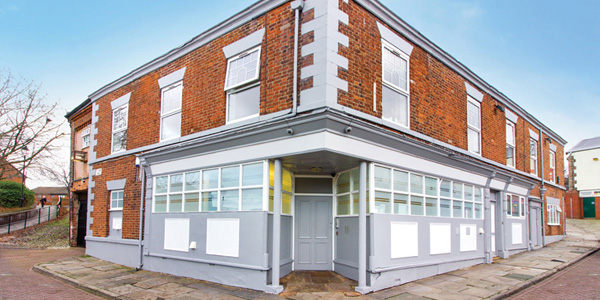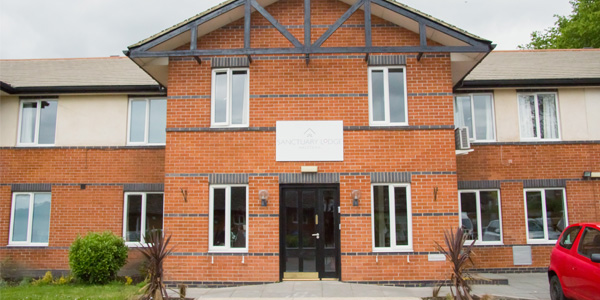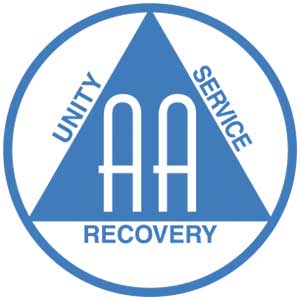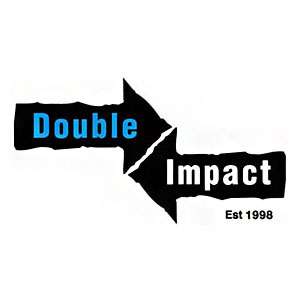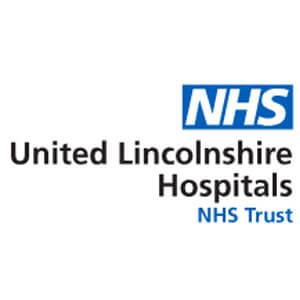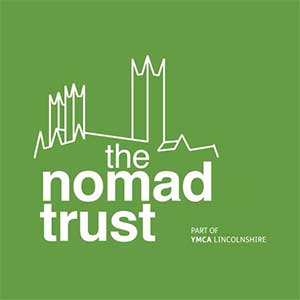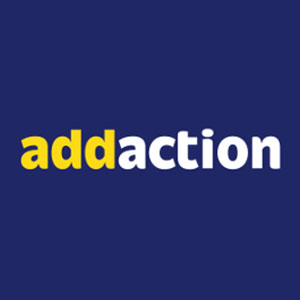No part of the UK is free from the ravages of addiction – be it to alcohol, illegal drugs, prescription medication, or a combination of any of those – and that includes Lincoln, which despite its reputation as a tranquil city with strong links to the countryside and agriculture is suffering from a serious hard drug problem. However, although the challenges are substantial, there is hope: many treatment facilities lie within reach of Lincoln, offering high-quality care to addicts willing to reach out for help. If you are among them, stay strong: the path to recovery is only a phone call away.
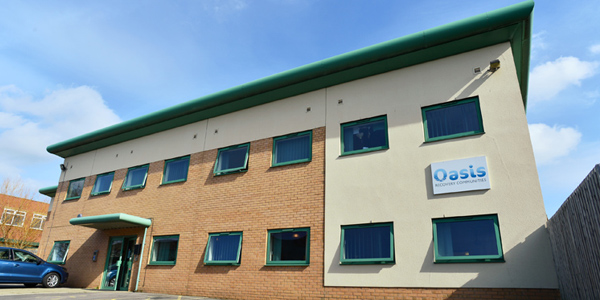
Built in 2009, Oasis Bradford was originally commissioned by the Department…
- Private
- 24/7 Nursing
- 24/7 nursing
- Residential
UKAT Rehabs
Oasis Runcorn is quite unique detox and rehab unit in offering two treatmen…
Sanctuary Lodge is a state of the art detox and rehabilitation facility, se…
Liberty House Clinic is a fully furbished detox and rehabilitation facility…
-
- 12 Step
- Group Setting
- Free
- Outpatient
-
- Educational
- Training
- Free
- Support
-
- Educational
- Training
- Free
- Support
-
- Free
- Outpatient
- Free
- Support
-
- Free
- Outpatient
- Free
- Support
-
- Free
- Outpatient
- Outpatient
- Support
- Load More
Drug & Alcohol Rehab Services in Lincolnshire
- A
- B
- C
- D
- E
- F
- G
- H
- I
- J
- K
- L
- M
- N
- O
- P
- Q
- R
- S
- T
- U
- V
- W
- X
- Y
- Z
What Is Rehab?

Rehab – short for “residential rehabilitation” – is commonly considered to be the most successful approach to addiction treatment in that it provides patients with the greatest chance of successfully transitioning to a life free of substance abuse. It does this via a two-pronged assault, tackling the immediate challenges of physical dependency and the longer-term ones of psychological addiction in one holistic treatment program.
Rehab – which refers both to the process of receiving treatment at a dedicated facility and to the facility itself – provides patients with 24/7 access to high-quality medical care and a broad range of proven therapy models, delivered within an attractive, secure and confidential setting. In that setting, patients can go through detoxification (“detox”) and withdrawal, with the support and assistance of medical professionals (and, potentially, appropriate medication) before focusing upon the psychological aspect of recovery and the challenges which lie ahead upon their return to the outside world.
How Can I Get Someone into Rehab?
Although it remains true that unless an addict truly wants to stop abusing drink and/or drugs any attempt at treatment is unlikely to be successful, as soon as that desire is articulated it is imperative to get that addict the help that they – potentially you – need. Why is time such a factor here? Because every day that passes during which an addict continues to wrestle with their illness is another day when they are at risk of dying from an overdose or as a result of an accident or violence in which substances of abuse are a key factor.
The NHS provides high-quality addiction treatment services but across the country demand is high and rising, and waiting lists are correspondingly lengthy. If you or a loved one are seeking relief from the burden of addiction, every day counts – so don’t waste another second: call 0800 024 1455 now to speak with an addiction specialist about some of the private options which may be available to you.
Advantages of Private Rehab
The secluded, tranquil and secure setting of rehab is ideal for an addict to begin the recovery, allowing them to focus upon the treatment and engage in quiet contemplation and analysis. Crucially rehabs are also highly confidential institutions: patients are able to relax safe in the knowledge that details of their condition and treatment will not reach the outside world.
When entering rehab, following an assessment by the medical team, an addict will go through the detox phase monitored and assisted by highly skilled and experienced medical professionals on hand at all times to make sure that this process is a safe and as comfortable as it can be (potentially leveraging the appropriate medicines to ameliorate the worst impacts of withdrawal syndrome).
After detox, a patient then moves into a therapy phase during which the underlying causes of their addiction will be revealed and analysed via a broad range of different therapy models (some of the less mainstream of which may vary from one rehab to the next) and in both one-to-one and group settings.
Throughout the patient’s stay in rehab they will benefit from bespoke dietary and fitness plans provided on the basis of “healthy body, healthy mind”. On top of high-quality food and fitness equipment, each rehab may have a range of other facilities available for recreational or other purposes; specifics of course will vary from one institution to another.
Upon completing a treatment programme, the patient will leave rehab – but must not think that their recovery is complete. Far from it: recovery is a lifelong process requiring constant diligence and dedication to remaining clean and sober and many challenges still lie ahead for the recovering addict walking back out through rehab’s doors. Because of this, good rehabs will provide up to a year’s free aftercare to ensure that patients feel they are still able to benefit from medical expertise at this crucial phase of their recovery.
What Does Rehab Cost in Lincoln?
The cost of private rehab in or near Lincoln can vary significantly by treatment programme, and depending on which of a variety of optional extras are selected. As a rough guide, standard costs range from between £5,500 and £11,000 per month, though the cheapest rehab treatment can start from as little as £834 per week. For more details, call 0800 804 4755.
NHS Addiction Treatment Options near Lincoln
If you feel that private rehab is currently not an option for you for reasons of cost, or if you do not feel that you are able to spend the required time away from family and/or work obligations, do not despair: various NHS and charity resources can be found in Lincoln and across Lincolnshire which can help you combat your addiction. Consult your GP about which of these resources may be available to you and would be most appropriate for your specific situation.
Advantages of NHS Treatment
The most obvious advantage of going by the NHS for addiction treatment is that it will be free at the point of use; as noted above, the potential cost of private rehab discourages some addicts from seeking treatment in that way (though it should be noted that compared with the costs of continuing with an addiction, this may be viewed as a minimal investment).
Another advantage the NHS offers is its geographic reach which makes facilities comparatively very accessible (though waiting times, again, can be distressingly excessive). Quality is also a factor though this varies from trust to trust.
Addiction Support Groups
A number of organisations exist across the country to provide assistance to recovering addicts, and some of these operate a support group model. Support groups are groups of individuals who are themselves recovering addicts – some only recently free from addiction, while others may have been clean for many years – and who come together at regular meetings to give and take mutual support: sharing their stories of addiction, giving advice on how to resist relapse, showing solidarity and sympathy when group members are struggling, and providing the simple companionship which can mean so much in times of difficulty and loneliness.
Support group attendees can come from all walks of life, brought together by their shared experience of addiction and recovery; typically, attendance at support groups is free and the only qualification for participation is a commitment to leading a life free of substance abuse.
The most famous support group organisation, and the one on which most others are modelled, is Alcoholics Anonymous (AA) which was founded in 1935 and runs on a 12-step programme of personal and spiritual development, with one of the steps being a recognition that a higher power – such as God – can assist with an alcoholic’s recovery. Narcotics Anonymous (NA), founded in 1953 and based directly upon the AA model, is the second-largest support group organisation worldwide and caters to recovering drug addicts specifically.
In a similar vein, but supporting those recovering from addictions to specific substances, are Cocaine Anonymous (CA), Heroin Anonymous (HA), Marijuana Anonymous (MA) and Crystal Meth Anonymous (CMA), all of which operate 12-step programmes. There are also support groups such as Al-Anon and Nar-Anon assisting the families and friends of addicts which typically hold meetings alongside those for the addicts themselves.
Support groups typically meet weekly, though each local chapter is managed independently and meeting times and venues are subject to change. To find information on meetings in or near Lincoln, see the relevant websites: Alcoholics Anonymous; Narcotics Anonymous; Cocaine Anonymous; Heroin Anonymous; Marijuana Anonymous; Crystal Meth Anonymous.
Types of Counselling

Many recovering addicts benefit from individual counselling – especially useful for people with very busy schedules – provided by private addiction counsellors who operate very much like “normal” psychotherapists (though with an understandable focus on addiction and its ramifications). This model is often of particular interest to people who have completed a rehab programme and who desire a supplementary aid to their recovery, as well as to those who have not yet engaged in such a programme but who seek a means of managing an addiction prior to doing so at an appropriate time.
Private counsellors can be found across the country, including in Lincoln itself, and a broad variety of therapeutic models are delivered. Counsellors are typically seen on an ongoing basis by private appointment – usually weekly – and charge a fee per such appointment. The majority of counsellors limit access to set working hours, though some do make themselves available for emergency access.
How to get to Oasis Recovery from Lincoln
Oasis Recovery is a unique and pioneering detox and rehab centre located in the heart of Bradford in a quiet secure location perfect for those struggling with addiction. Spacious and tranquil, Oasis Recovery’s highly skilled medical and support staff, and its excellent infrastructure, mean it can facilitate all manner of medical detoxes, including complex detoxes and those who require a higher intensity of medical care.
Oasis Recovery boasts 19 en suite bedrooms – furnished to a very high standard – with walk-in showers, disabled facilities, large communal living areas, well-equipped treatment rooms, outside courtyard, and holistic spa jacuzzi. The medical team provide close monitoring of all patients throughout the day and night, while patients can also undergo structure therapeutic treatment alongside any medical detox which may be necessary.
To get to Bradford from Lincoln, take the B1308 onto Long Leys Road and then join the A57; keep on that road until merging with the A1 following signs for Doncaster. Keep on the A1(M), then at junction 42 join the M62 towards Manchester/Bradford. At junction 26, take the M606 exit and stay on the motorway until junction 3, at which point take the A6177 and then the A641/Manchester Road; then follow signs to the city centre.


